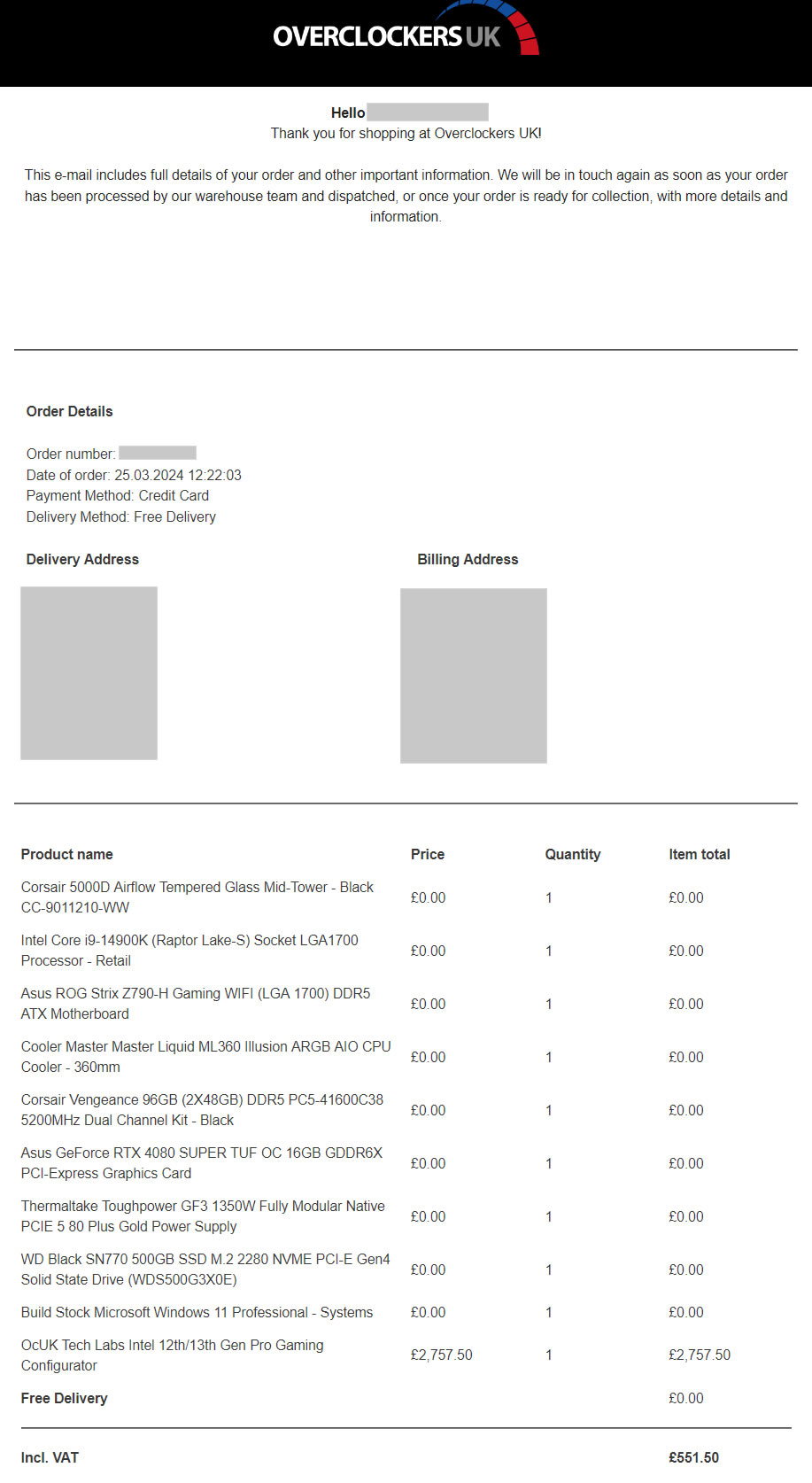this post was submitted on 27 Mar 2024
14 points (85.0% liked)
PC Master Race
18230 readers
4 users here now
A community for PC Master Race.
Rules:
- No bigotry: Including racism, sexism, homophobia, transphobia, or xenophobia. Code of Conduct.
- Be respectful. Everyone should feel welcome here.
- No NSFW content.
- No Ads / Spamming.
- Be thoughtful and helpful: even with ‘stupid’ questions. The world won’t be made better or worse by snarky comments schooling naive newcomers on Lemmy.
Notes:
- PCMR Community Name - Our Response and the Survey
founded 2 years ago
MODERATORS
you are viewing a single comment's thread
view the rest of the comments
view the rest of the comments

I get ya want to overclock, buy why on a rendering machine? Are those seconds saved worth loosing an entire render and having to restart / clear CMOS
The more ram the less stable overclocking will get. Hence why most rendering machines stick with JDEC timings
Feel free to ignore me as the most ram I've OC'd if 64gb
Hey thanks for your reply, are you saying memory training is only related to overclocking?
As no, i dont intend to overlock the machine. I dont know much about PC building and had seen some videos with people talking about memory training, i just assumed it was a part of the build/boot process for all machines.
I guess my question really is then, does having a very large amount of RAM have a negative effect on boot times, and is there any variation in that depending on the type of boot, cold/soft etc.
My 64GB rig takes a good 1-2 minutes to memory train. You can skip it on most boots by enabling
Memory Context Restoreon Asus motherboards, but starting after being unplugged from power or a hardware change (and seemingly randomly) will still require training. I also believe XMP plays a heavy part in training, so leaving it at the default JDEC speeds should speed up the boot process.